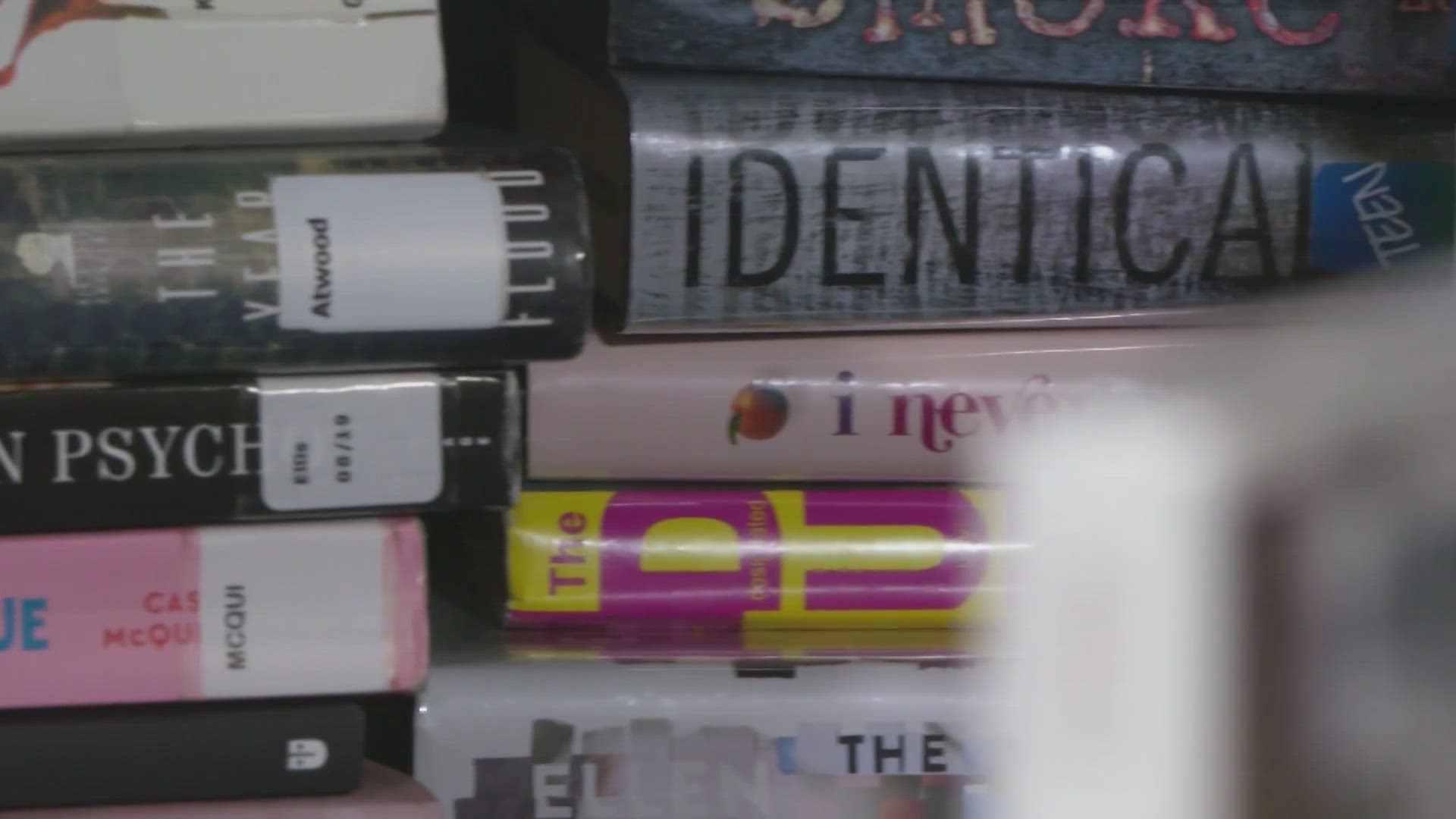AUSTIN, Texas — House Bill 900, which would set new standards for school libraries to keep sexually explicit content off bookshelves, is heading to Gov. Greg Abbott’s desk. Librarians, legal experts and some parents are concerned that the bill’s language is vague and broad enough to ensnare books that are not inappropriate.
“House Bill 900 is simply another tool that we as a state can use to do all that we can do in our communities and in our schools to address harmful sexually explicit material,” state Sen. Angela Paxton, R-McKinney, said on the Senate floor Tuesday night.
The upper chamber formally approved the bill with a 19-12 vote along party lines just before midnight Tuesday. Without any changes to the legislation, HB 900 is now on its way to the governor. Abbott’s office didn’t immediately respond to a request for comment regarding his support for the legislation.
Bill author Rep. Jared Patterson, R-Frisco, tweeted Sunday that Paxton, the Senate sponsor, assured him that the Senate version would match the House version for a quick approval. HB 900 still needs final approval from the chamber before it can be sent to the governor.
If HB 900 passes into law, book vendors would have to assign ratings to books based on the presence of depictions or references to sex. A book would get a “sexually relevant” rating if the material describes or portrays sexual activity and is part of the required school curriculum. A book would get a “sexually explicit” rating if the material describing or portraying sexual behavior is “patently offensive” and not part of the required curriculum. State law defines “patently offensive” as materials that are an affront to “current community standards of decency.”
Books with a “sexually explicit” rating would be removed from library bookshelves. And students who want to check out books with a “sexually relevant” rating would have to get parental permission first.
During a Senate education committee hearing earlier this month, Cindi Castilla, president of the conservative think tank Texas Eagle Forum, characterized the proposal as a child protection bill. Castilla said explicit materials in books are educationally unsuitable for students and that taxpayers should not fund such books.
“Our schools must not sexualize our students or provide them pornographic reading material or introduce them to inappropriate materials that distract from the educational goals we’ve set as a state,” she said.
Lucy Podmore has been a school librarian for 17 years in San Antonio. Every school year, she buys more than 1,200 books for her students from multiple vendors. Podmore said the ratings would create “unreasonable obstacles” for book vendors. If HB 900 is passed, she said the bill’s requirements would slow down her book purchases. Librarians like Podmore are at the center of the bill.
“How feasible is it for the hundreds of vendors used in Texas to retroactively offer ratings on these items before librarians are allowed to purchase new materials from them?” Podmore asked lawmakers during committee testimony. “I urge you to not impede the ability of school librarians to serve their students.”
If the legislation is enacted, the Texas Library Association would help school librarians across the state implement it. Book ratings do not need to be standardized, which could lead to confusion, Mary Woodard, the president of the association, said.
Woodard and librarians across the state also worry the costs of implementing the bill could undermine school libraries altogether. Vendors may pull out of selling books in Texas and contract a third party to rate books, racking up more costs that these businesses would then pass on to libraries, Woodard said. The full potential scope of that financial burden remains to be seen.
“The bill will greatly slow the acquisition of materials by school libraries, reducing their usefulness and currency again, creating a negative impact on students,” said Mark Smith, the former Texas State Library and Archives Commission Director.
Paxton, who sponsored a similar bill in the Senate, said during the hearing that the bill would provide increased transparency for parents and school districts regarding the content in school libraries.
Smith said HB 900 or Paxton’s Senate Bill 13 would create several levels of scrutiny of the sale, purchase and use of books in school libraries.
“Such oversight has not been needed in the past and is not needed now,” Smith said. “The bill will interfere with student learning and achievement by blocking access to materials that have been restricted.”
Jolie McCullough and Alex Nguyen contributed to this story.
This story comes from The Texas Tribune, a nonprofit, nonpartisan media organization that informs Texans - and engages with them - about public policy, politics, government, and statewide issues.

